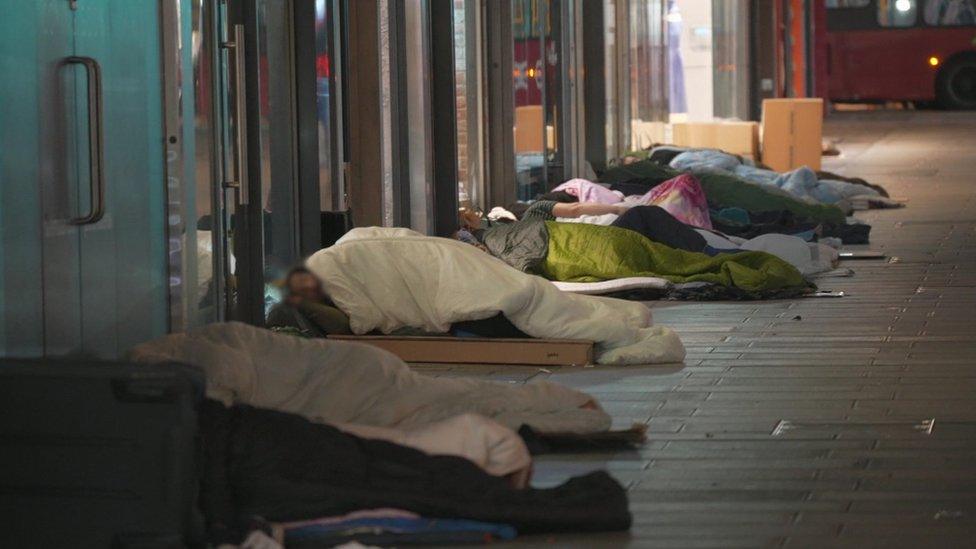'Homelessness is a huge part of our culture'
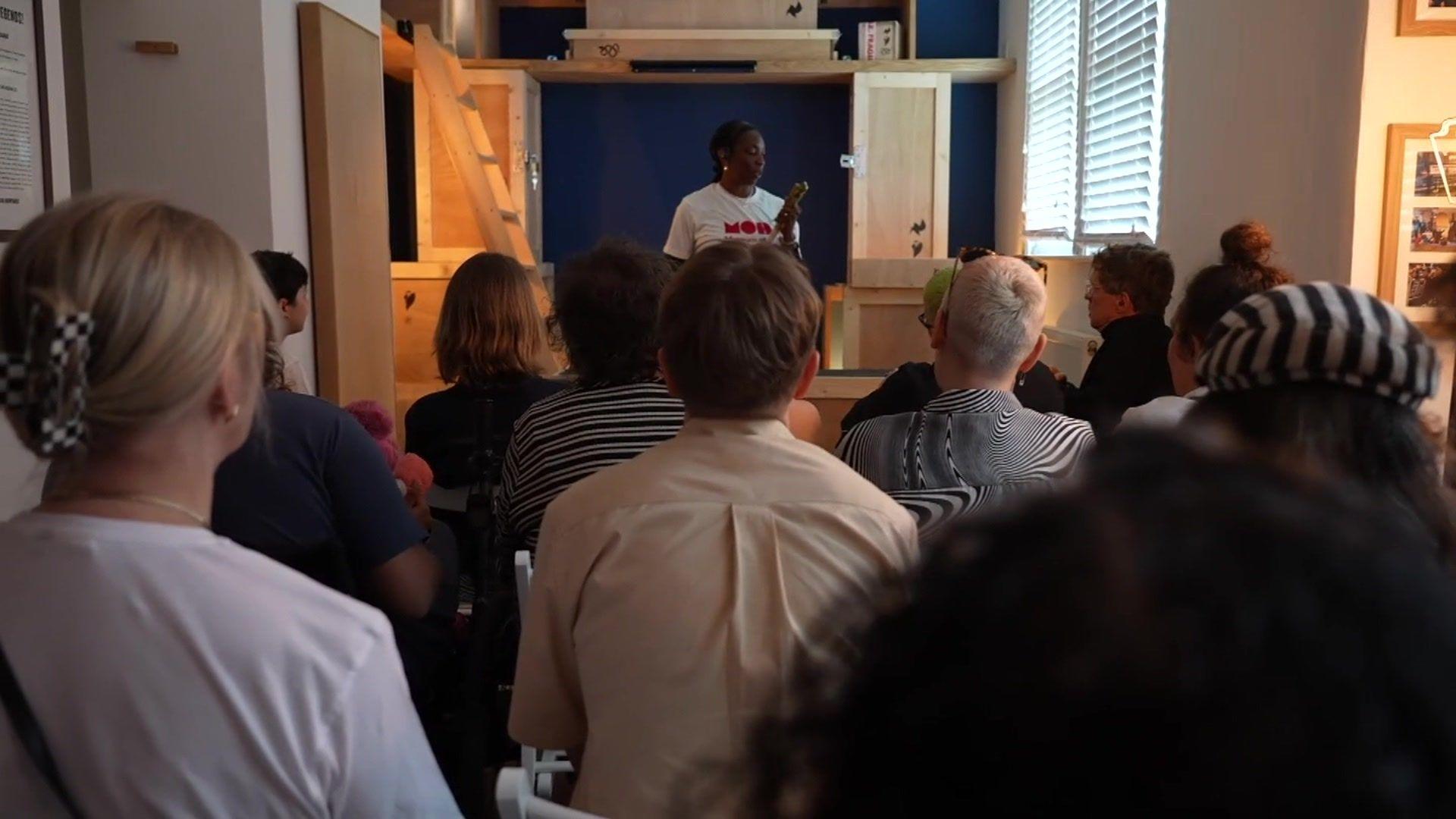
Performer Lisa Ogun tells an audience about a donor's walking stick
- Published
The Museum of Homelessness has opened in a new fixed home in north London after years as a touring exhibition. BBC London went to take a look.
Lisa Ogun, who was homeless for many years from her late teens, tells an audience the tale behind a walking stick.
Its owner had it by his side all the time he was homeless - it accompanied him through protests, hostels, and a variety of makeshift street beds.
After deliberating for 18 months, he decided to donate it to the Museum of Homelessness, which opens on Friday having found its own fixed abode in Finsbury Park after 10 years on the road.
The donor came upon the stick in a moment of desperation. Suffering walking difficulties, he got off the bus one time before realising it had departed with his crutches on it.
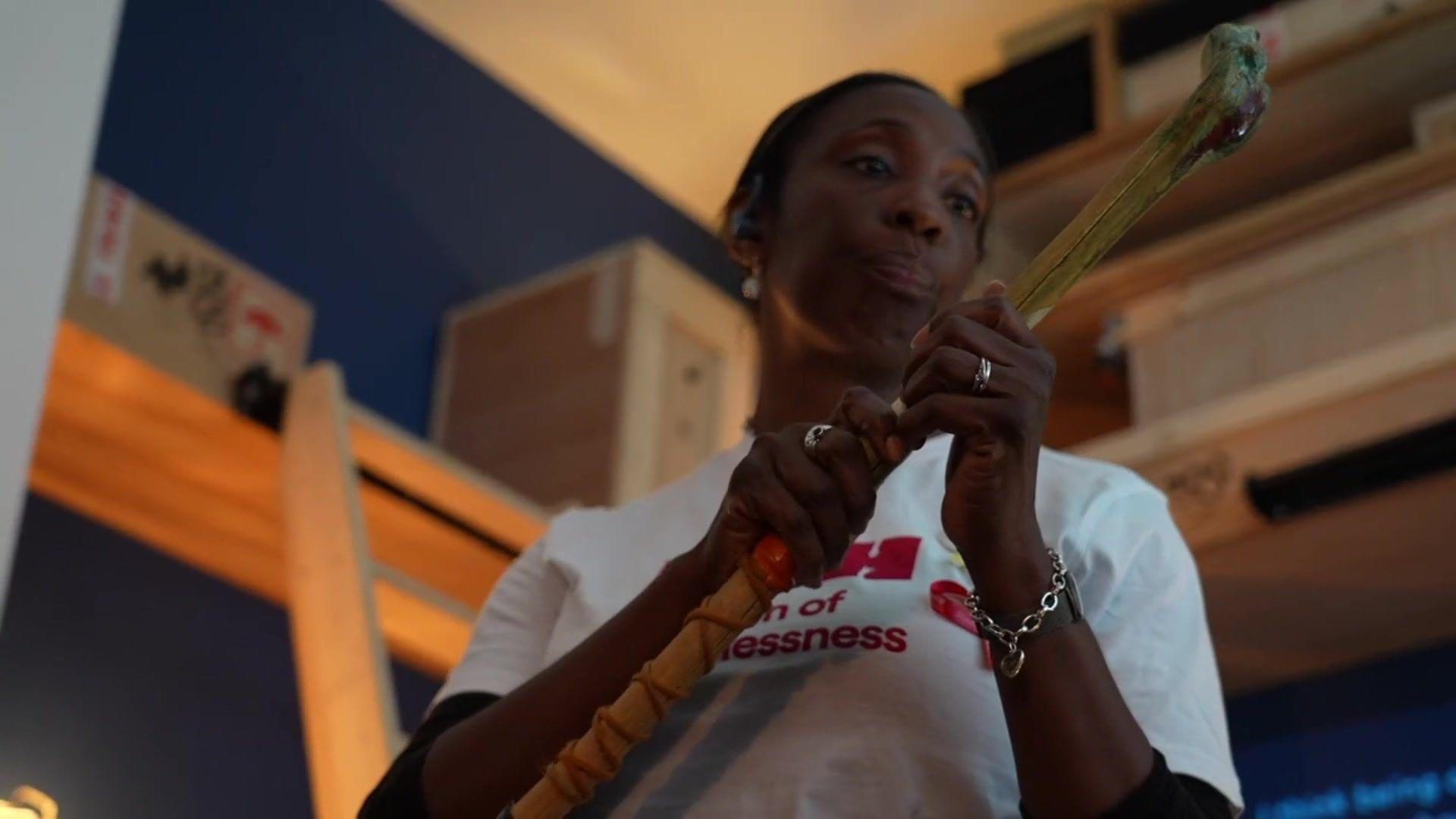
Ms Ogun shows visitors the stick
To his rescue came a long branch, which was lying on the pavement in front of him.
From that moment, the stick never left his side, and over the years he fashioned it into a smart varnished walking stick, with a snake's head clamped on.
Its sentimental value came to signify healing, recovery and tenacity. For the donor, it's evident why it took him 18 months to come to terms with the idea of parting ways with it.
This one of many objects donated to the museum, which tells the stories of those living on the streets, brought to life by performers who also have experienced homelessness.
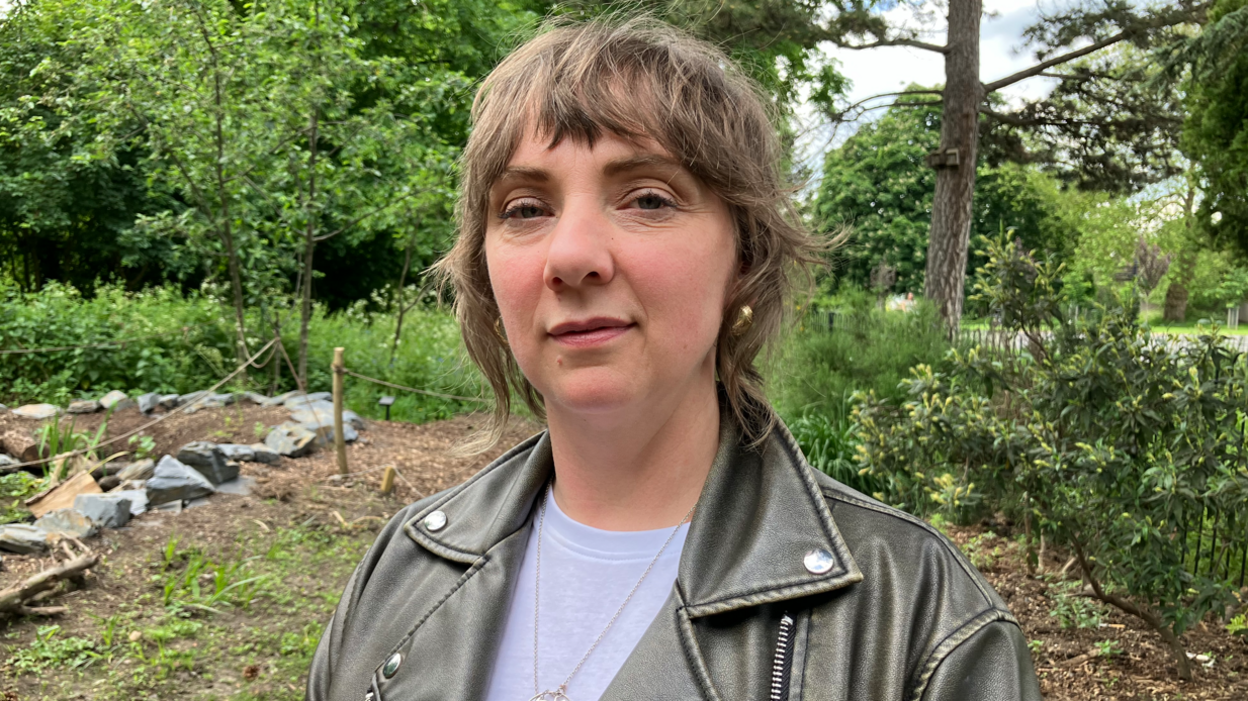
Jess Turtle founded the Museum of Homelessness with her husband Matt
For co-founder Jess Turtle, the objects and performers "humanise what it is like to be homeless" as well shifting the public perception of those who are homeless.
"It's a huge part of our culture," she adds.
Jess grew up in the Wallich Clifford Community, a homeless community in Cardiff, now the Wallich charity.
Many years later after she had moved on, a friend of her father's from the community told her they had kept lots of archives and artefacts from that time.
"It was a full-circle moment for me, reconnecting with people who are long-lost family and it came to me that we should put it all in a museum," she says.
Power to move rough sleepers over 'smells' dropped
- Published13 May 2024
Thousands more refugees become homeless in England
- Published30 April 2024
Former addict 'giving hope' to homeless
- Published21 May 2024
Since 2014, she, her husband Matt and a like-minded and continuously growing team toured their exhibition, which has now been made permanent for the first time.
"It's an emotional home for people, a place where we can celebrate who we are and share that with the wider public," she said.
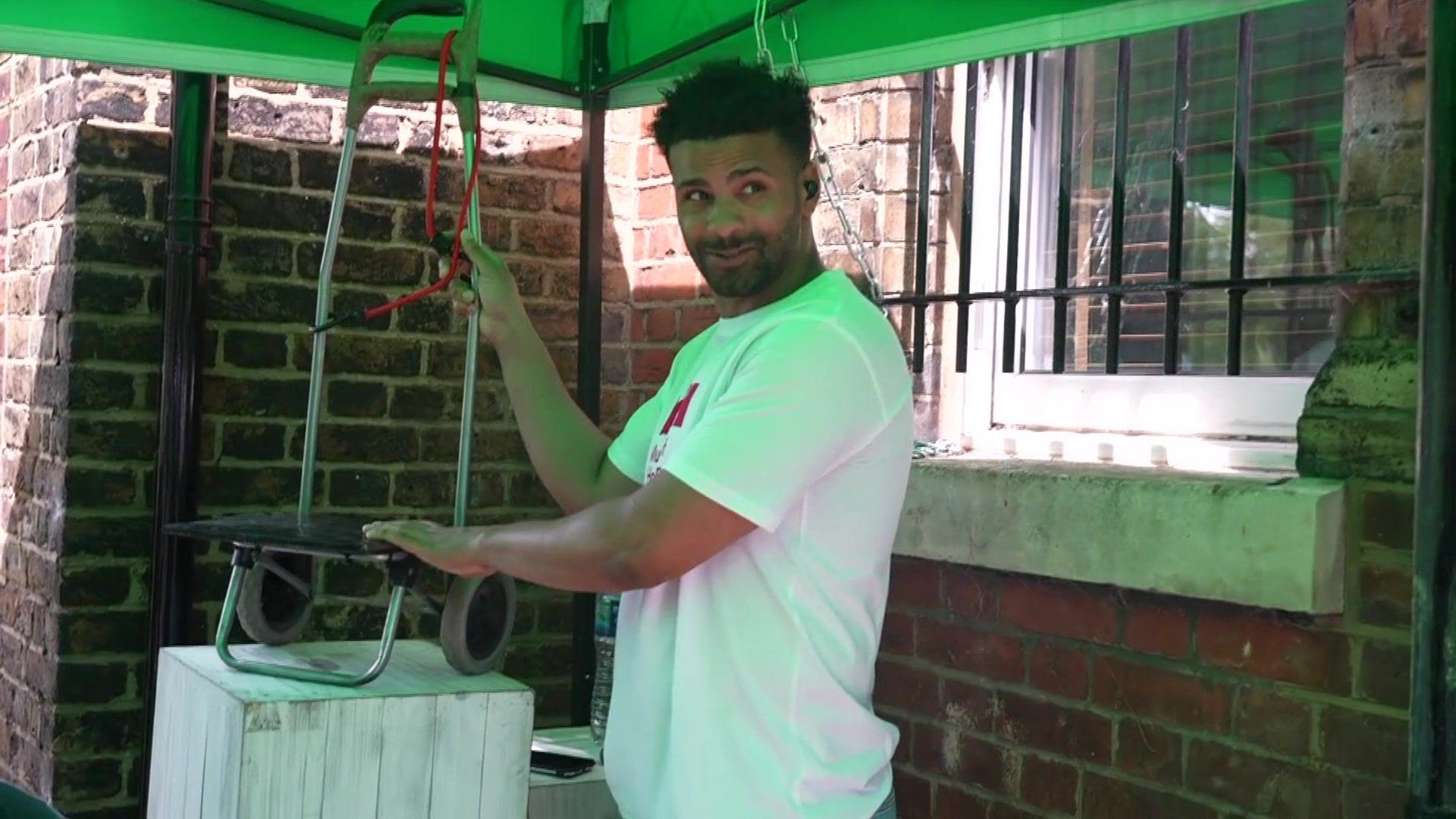
Performer Lewis Brown tells the audience about a trolley donated to the museum
But the museum is not just symbolic. It has some very tangible and vital practical means of help.
Jess shows us a cupboard full of sleeping bags, tents and food. As she is speaking to us, she is interrupted to help someone who has been arrested for an offence related to rough sleeping.
Jess and her team offer help to people from many different walks of life who have found themselves facing homelessness, as she cites as another case she is involved in concerning refugees now homeless after they lost their Home Office accommodation.
Its resources, aided by the Arts Council and smaller family trusts, only falls short of offering an actual shelter for the homeless as the venue's licence does not permit it.
Listen to the best of BBC Radio London on Sounds and follow BBC London on Facebook, external, X, external and Instagram, external. Send your story ideas to hello.bbclondon@bbc.co.uk, external
Related topics
More on homelessness in London
- Published6 December 2023
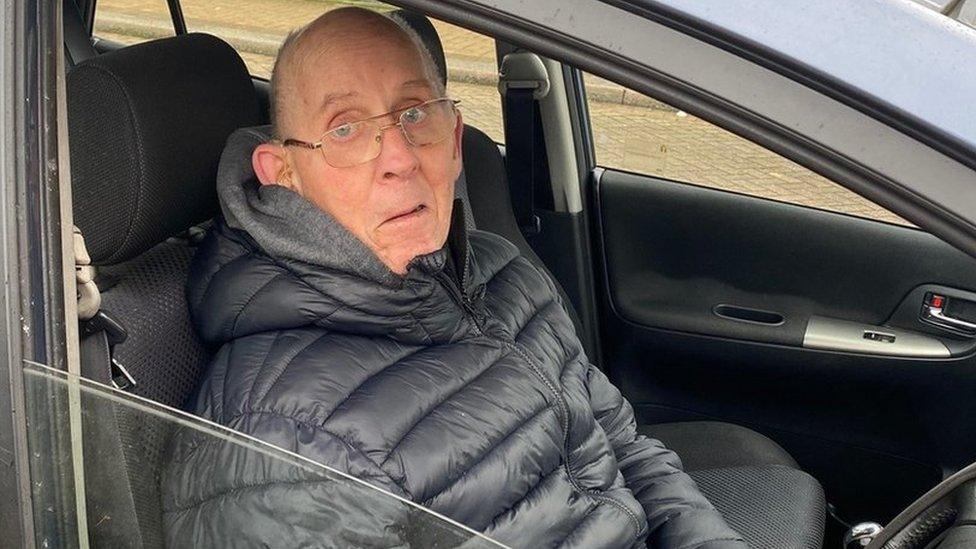
- Published28 February 2024
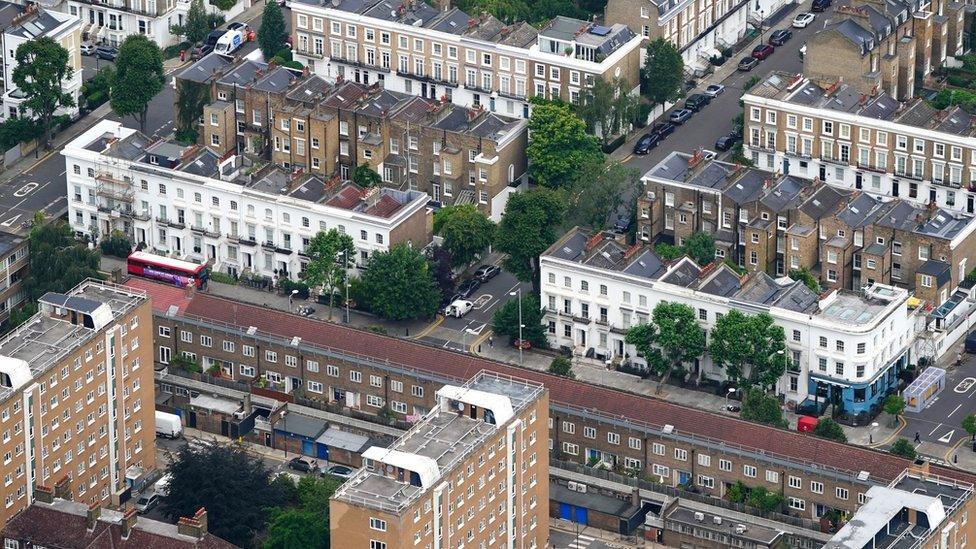
- Published31 July 2023
